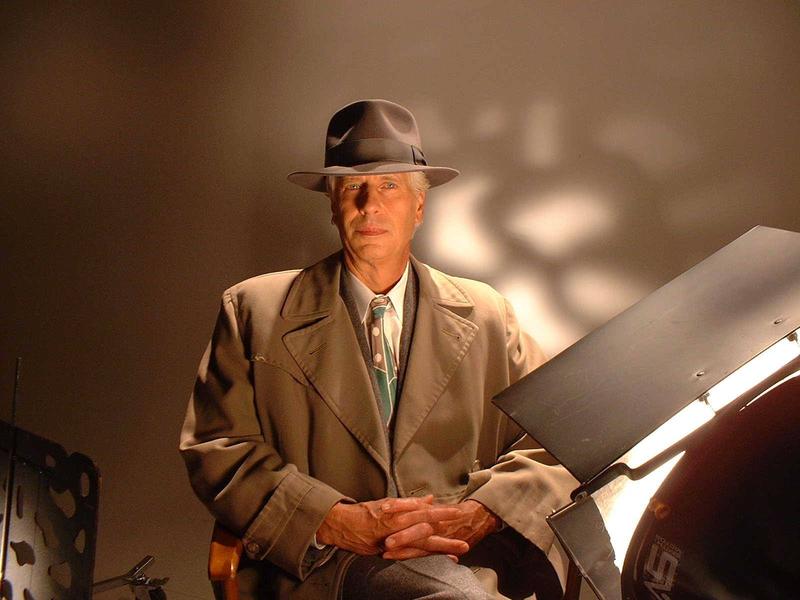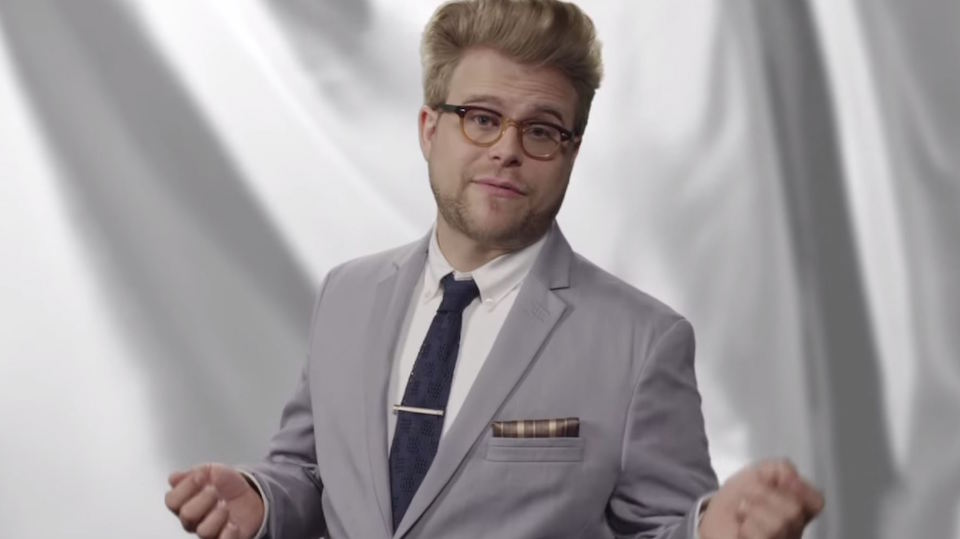Phil Austin, writer/comedian, founding member of Firesign Theatre and creator of the character, “Nick Danger,” has died. Austin was 74. This obituary was provided by fellow Firesign member Philip Proctor.
Phil Austin was born in Denver, April 6, 1941 and grew up in Fresno, California. He passed away on June 18, 2015 at his home on Fox Island, near Tacoma, Washington. Thought to be recovering from treatment for cancer, Austin spent his last day with Oona, his beloved wife of 44 years, and his family of six dogs. He planted tomatoes in the huge garden he had devoted himself to for twenty years, laughed at Tiger Woods as he and Oona watched the U.S. Open, taking place close by, ate his favorite dinner of stuffed pork chop and went to sleep in the home he loved, on the shore of Puget Sound. His heart stopped in the early morning and he could not be revived.
“Phil had the richest, most complicated sense of humor of the four of us,” said his Firesign Theatre partner David Ossman. “He loved what he called ‘the stupid’ and he could twist it into surreal pieces of head-beating comedy. His High School Lunch Menus, the Irish guy who taught how to paint like the insane, the Funny Names Club of America. He had the whole range. Bergman and Austin were really the Lennon and McCartney of the group.”
Austin’s mother was an English and Drama teacher, his father a jazz trumpeter. Both inspired his career as writer and musician. He began broadcasting by reading the funnies over the air while still in elementary school and continued to create comedy and political satire on tape with high school friends.
With a two-year scholarship to Bowdoin College, Austin moved to Maine, returned to California and continued at Fresno State and UCLA. He began acting and directing theatre in high school and college, and continued to work as an actor in Los Angeles, appearing in the first season of plays at the Mark Taper Forum along with his future Firesign partner Phil Proctor.
As an Army Reservist, with a group known as “The Buddies,” he wrote a novelty single, “Duckman,” released by Decca in 1966, the year he began working as Literature and Drama Director at KPFK in Los Angeles and met David Ossman and Peter Bergman. As producer and engineer of Bergman’s “Radio Free Oz” he began what he called “the endless conversation” that soon created The Firesign Theatre’s early radio identity.
Austin recalled, “I got a job in a radio station because I could always do that with my voice – could make you believe that I was committed to the words coming out of my mouth. I mistakenly believed, therefore, that I was an Actor. I’m not. I’m a musician. Interesting that it was the sounds of the words that got to me most. The Firesign Theatre was the vehicle that allowed me to make that discovery.”
With Bergman, Ossman and Proctor Phil Austin co-wrote over twenty comedy albums, appeared on stage at Carnegie Hall, Town Hall and the Beacon Theatre in New York and many other major venues on national and West Coast tours from 1970 to the early two-thousands. Firesign’s work won three Grammy nominations and a Hugo nomination for science fiction. Their album “Don’t Crush That Dwarf, Hand Me The Pliers” was honored by the Library of Congress, which dubbed the group “the Beatles of comedy.” Their scripts have appeared in several collections, including “Marching to Shibboleth,” “Exorcism in Your Daily Life” and “Profiles in Barbeque Sauce.”
Austin created The Firesign Theatre’s iconic character, the surreally noir 1940’s radio detective, “Nick Danger, Third Eye,” and was the principal author of Nick’s many comedy adventures on record, radio, stage, television, film and even Pizza Hut commercials.
Danger made his first appearance on Firesign’s second album, “How Can You Be In Two Places At Once When You’re Not Anywhere At All,” in 1968. He reappeared with new adventures on stage in 1976 in “Radio Laffs of 1940” and again in 1979 in Firesign’s “Joey’s House.” The 1984 CD ”The Three Faces of Al,” starring Danger was nominated for a Grammy. Firesign’s last album, “Bride of Firesign,” released in 2001, also a Grammy nominee, brought Danger into the 21st Century. A collection of Nick Danger’s adventures, “Box of Danger,” was released in 2008 by Shout Factory. The Nick Danger Prize for audio production in the detective genre, named in Austin’s honor, was awarded for the first time just a week before his death.
Although Firesign is not known for its musical chops, Austin wrote and performed songs heard and seen in 1972’s “The Martian Space Party,” (including “Loons,” a loving tribute to his partners). “Roller Maidens From Outer Space,” his 1974 “solo” album featured three country-western songs, and “Fighting Clowns,” Firesign’s 1980 “full-frontal” stage musical review included the mockingly sentimental “Hey, Reagan!” and reggae-styled “Billville.” Touring with David Ossman in “Dr. Firesign’s Theatre of Mystery” in 1975 he brought his guitar along for several numbers while Ossman read poetry.
Phil Austin’s other major characters for Firesign include Happy Harry Cox, the New Age nudist documentarian who narrates “Everything You Know Is Wrong” on record and film, and the border-crossing hippie in “Waiting For The Electrician.” He played Porgie Tirebiter’s military Dad in “Don’t Crush That Dwarf, Hand Me The Pliers,” Prince Edmund Edmund in “Anythynge You Want To,” and introduced “Bebop Loco,” a Latino radio personality, in “Give Me Immortality or Give Me Death,” a 1999 Grammy Nominee.
The group’s final live show together was in Portland in 2011. Peter Bergman was celebrated in a three-man performance in Kirkland, Washington after his death in 2012. That event marked Austin’s last appearance with Ossman and Proctor. The group’s work in all media is being carefully curated and archived, with a double-DVD collection of films due in the fall of 2015.
Phil Austin’s many other writing and voice-performance credits include work with Mama Cass, David Cassidy and Chad and Jeremy, narration for Gary Usher’s “The Astrology Album” and contributions to Barbra Streisand’s HBO Specials. Austin had a hand in several film scripts, including 1970’s psychedelic western, “Zachariah,” and a movie for The Grateful Dead, “The Dead Sell Out.” His radio show, “Hollywood Nightshift” was a cult favorite in the 1980s and his spoken book, “Tales of the Old Detective” collected a few of the many stories he’d published in magazines from “Crawdaddy” to “Screw.” He published the first half of his novel “Beaver Teeth” on his blog.
In an interview for Firesign fan-zine “It’s Just This Little Chromium Switch,” Austin was asked if he had any great wisdom to impart. “Wisdom is not my strong point. I have been known to have a couple of good ideas and get a couple of laughs here and there. I think that’s more than enough. I’m a fortunate person, mostly because I had the experience of falling in love with Oona. It’s easily the biggest deal in my life. Turns out she likes me too.”
The Firesign Theatre’s website is firesigntheatre.com and comprehensive information about their albums, books and other productions will be found there. Firesign and its members can also be found on Facebook and many preserved performances from their nearly fifty year history can be found though YouTube.



